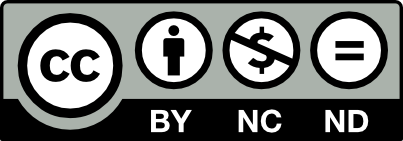Human rights and respect for culture.
The Talibè history in Guinea Bissau from an ethnopsychosocial perspective
DOI:
https://doi.org/10.23823/ctse2m84Keywords:
Talibè Children, Ethnopsychosocial Perspective, Guinea Bissau, Psychosocial Context, Psychosocial interventionsAbstract
This article examines the complex phenomenon of Talibè children in the territory between Guinea Bissau and Senegal, trying to analyse it from the different perspectives of the various people involved. Many Guinean children are sent by their families to study in Koranic schools typically in Senegal. These schools are run by teachers called 'marabouts'. In these, the child often finds himself (the children sent to this schools are male) having to spend most of his days on the streets to give alms and beg in order to then be able to bring a certain amount of money to the teacher. The teaching of the Koran, when it occurs, is only for a few hours a day and is carried out in a repetitive and mnemonic way. The goal is to offer the reader a complete analysis of the phenomenon that starts from the voices of the various protagonists. We start from the general vision of the context and the phenomenon and then going into detail by telling some stories and giving voice to the protagonists involved. Then we try to summarize what emerged trying to offer some useful ideas for possible interventions, always starting from past experiences trying to open new horizons.
Downloads
Downloads
Published
Issue
Section
License
Copyright (c) 2024 Pietro Barbetta, Alberto Merlo

This work is licensed under a Creative Commons Attribution-NonCommercial-NoDerivatives 4.0 International License.
Authors who publish in this journal agree to the following:
- Authors retain the rights to their work and give to the journal right of first publication of the work simultaneously licensed under a Creative Commons License - Attribution that allows others to share the work indicating the authorship and the first publication of this journal.
- Authors can accept other non-exclusive licensing agreements for the distribution of the published version of the work (eg. Deposit it in an institutional repository or publish it in a monograph), provided to indicate that the document was first published in this journal.
- Authors can spread their work online (eg. In institutional repositories or on their website) before and during the submission process, because it can lead to productive exchanges and increase the work published citations (See The Effect of Open Access) .










